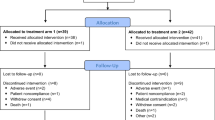Abstract
Antibodies can be processed by the B- and T-cell systems and may lead to a selective activation of the immune system. The network structure of the immune system implicates the possibility of a selective immunization by the activation of idiotypic cascades.
In a retrospective analysis, patients with advanced ovarian carcinoma, who had received MAb, against the cancer-associated antigen CA125 for diagnostic purposes, were analyzed for the production of anti-idiotypic antibodies, survival rate, and immunological effects. Furthermore, we started a prospective and randomized study for ovarian cancer patients, using a different antigen, TAG72, for the induction of idiotypic cascades.
Our first results on 58 patients with advanced ovarian carcinomas showed that the induction of anti-idiotypic-antibodies against OC125 mimicking the TAA Class III CA125 leads to a prolongation of the survival rate, and, in extended stages, to an induction of antitumoral immunity, and that the induction of idiotypic cascades is also possible for different antigens like TAG72. Summarizing the activation of idio-typic network cascades seems to be a very effective way of intervention in the immune system of patients with advanced stages of ovarian carcinoma. A prospective study of the adjuvant approach seems to be necessary.
Similar content being viewed by others
References
Reinsberg, J., Heydweiller, A., Wagner, U., Pfeil, K., Oehr, P., and Krebs, D. (1990)Clin. Chem. 36, 164–167.
Cerny, J. and Hiernaux J. (1990)Concept of Idiotypic Network: Description and Functions in Idiotypic Network and Disease. (Cerny, J. and Hiernaux, J. eds.), American Society for Microbiology, Washington, DC.
Jerne, N. K. (1974)Ann. Immunol. (Paris) 125C, 373.
Koprowsky, H., Herlyn, D., Lubeck, M., DeFreitas, E., and Sears, H. (1984)Proc. Natl. Acad. Sci. 81, 216–219.
Wettendorff, M., Iliopoulos, D., Tempero, M., Kay, D., De Freitas, E., Koprowski, H., et al. (1989)Proc. Natl. Acad. Sci. 86, 3787–3791.
Wagner, U., Oehr, P., Reinsberg, J., Schmidt, S., Schlebusch, H., Schultes, B., et al. (1992)Biotechnol. Therap. 3, 81–89.
Chronides, A., Wagner, U., Mallmann, P., Schmidt, S., and Krebs, D. (1992)J. Cancer Res. Clin. Oncol. Suppl. 118, 17.
Author information
Authors and Affiliations
Rights and permissions
About this article
Cite this article
Wagner, U., Reinsberg, J., Schmidt, S. et al. Monoclonal antibodies and idiotypic network activation for ovarian carcinoma. Cell Biophysics 24, 237–242 (1994). https://doi.org/10.1007/BF02789234
Issue Date:
DOI: https://doi.org/10.1007/BF02789234




